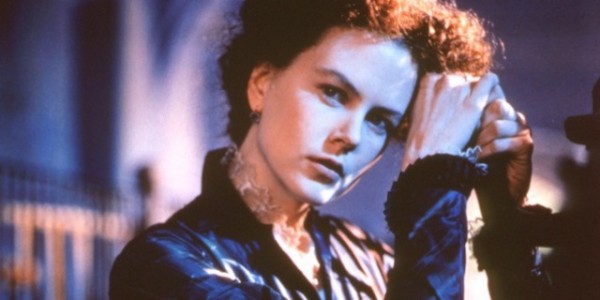
The class had just finished reading The Portrait of a Lady, Henry James’s 1881 novel about an American girl abroad, and we were arguing over the ending.
Warning: spoiler alert!
Isabel Archer, the heroine, having made a disastrous marriage to the expatriate esthete Gilbert Osmond—a man who wants her money and, more chillingly, the murder of her soul—has, in direct opposition to his command, traveled to England to bid farewell to her dying cousin. She must now decide whether or not to return home. Caspar Goodwood, a morally upright American who loves her, urges her to disregard convention and run away with him. But after one unJamesian kiss, she refuses and decides to return to her husband after all.
“Why do you think James has Isabel return to her marriage?” I asked the class.
Most of my students gave the expected answer: that she felt obliged to do so on behalf of Pansy, Osmond’s daughter from a previous relationship, who was in danger of being either buried alive in a convent or married off to some unpalatable suitor in accordance with her father’s notion of status. Isabel couldn’t bring herself to abandon Pansy, they said; even so, they were appalled by Isabel’s decision. Surely, she could have found another way to help the girl. No need to sacrifice her own life in the process.
“So,” I asked, “no one sees the marriage itself as the reason for her return? I mean, the idea of having made a commitment to the institution, if not to the man. Does that make no sense to you in this day and age?”
Silence. The idea seemed to not make sense to them. That is, until A., a soft-spoken young man who had emigrated with his family from Iran at an early age, raised his hand. He could understand Isabel’s choice, he said. It resonated with events in his own life. His mother, stuck in an abusive relationship with his father, had chosen to remain in the marriage after they came to the United States because she believed she had made a morally binding choice. His father had not behaved as his mother would have hoped, but the institution remained sacred to her, and the possibility of making the marriage better sustained her. He knew that his mother had made this choice, and he respected her for it, as he did Isabel Archer.
I can’t say that the class understood. Was it a cultural divide being expressed here or an imaginative one? I noted that in The Golden Bowl, James’s last completed novel, his vision had broadened. The wife, though she decides to stay in a bad marriage (in this case, her husband is an adulterer), does not end on this fatalistic note. Instead, she reclaims her husband and restores her marriage. One could argue, of course, that the character of the husband is different in the later novel than in the earlier one. Gilbert Osmond is mean and inflexible, emotionally if not physically abusive. We cannot imagine Isabel being able to reconcile with him. By contrast, Prince Amerigo, the husband in The Golden Bowl, is simply thoughtless and pleasure-seeking, and, as such, a malleable and, in some sense, a generous being.
But the way in which the characters are drawn may also show how James’s sense of marriage had evolved. He had come to see how the imagination could work to transform a seemingly intractable situation into something more pliable. It is perhaps with this sort of imagination in mind, as well as a sense of duty and institutional respect, that A.’s mother decided to stay in her bad marriage. I have to admit that I did not ask A. what his mother’s life had been like since she made that decision. Perhaps, as with Isabel Archer, whose fate James specifically decided to leave en l’air, I wanted to leave that open to my own imagination.

